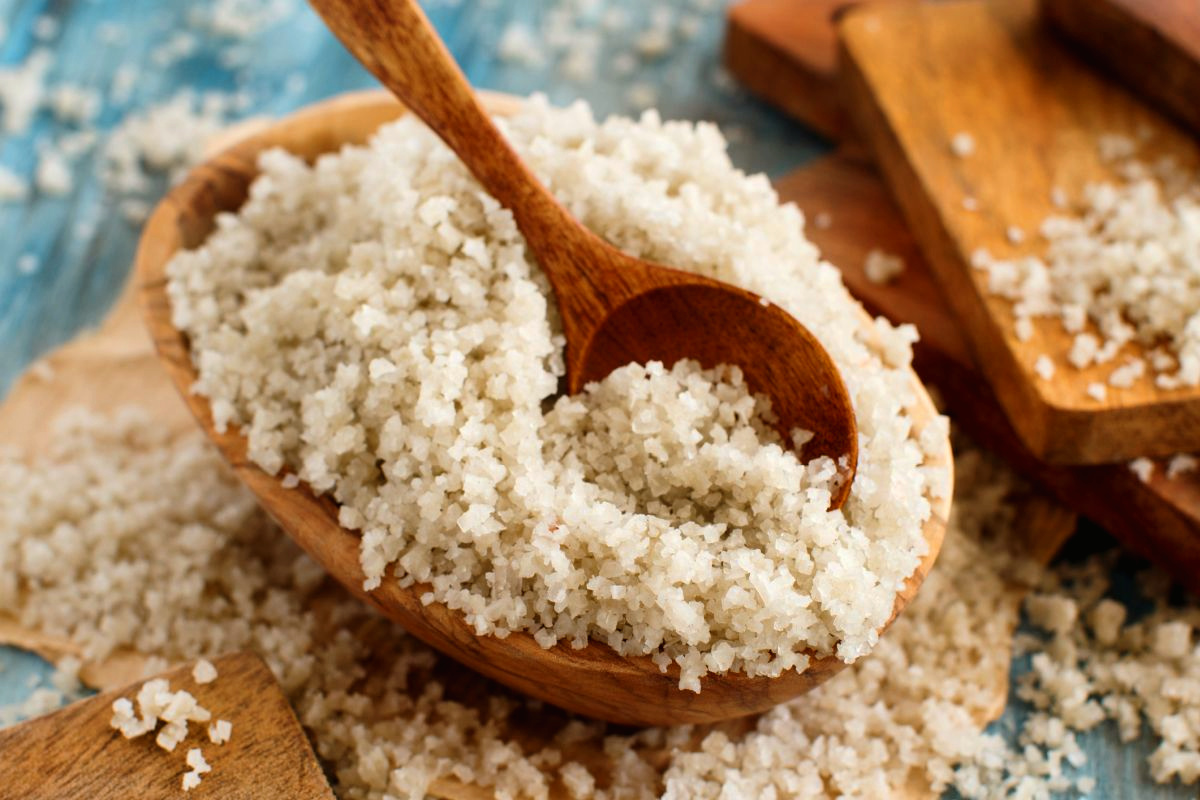Celtic sea salt is an unprocessed whole salt collected by hand using wooden tools that is air and sun-dried to preserve its natural minerals. Revered for its health benefits and mineral content, there are many reasons Celtic sea salt should be featured in your recipes.

Why Celtic Sea Salt is Special
Celtic sea salt is harvested from the sea near the coasts of France and Spain. Because it is gathered directly from the source, Celtic sea salt requires less processing and additives than regular table salt.
As a result of the lower amount of processing, Celtic sea salt retains more of its minerals and flavor than regular table salt, making recipes tasty without having to add too much.
What Minerals Does Celtic Sea Salt Contain?
Celtic sea salt contains calcium, copper, zinc, iron, and potassium. It is important to note, however, that Celtic sea salt does not contain iodine (as regular table salt does), which is a nutrient that is essential to human health.
Where Does Celtic Sea Salt Come From?
Despite the name, not all Celtic sea salt comes from Ireland. Rather, some varieties are harvested in France, while other types are harvested from salt marshes all over Europe.
What Does Celtic Sea Salt Look Like?
Celtic sea salt is unrefined, meaning it will look gray or brown, depending on where it is harvested from. The granules are non-uniform in shape and size and require various levels of grinding before they can be added to recipes.
Are Celtic Sea Salt and Himalayan Salt the Same Thing?
Himalayan salt comes from rocks in Pakistan, while Celtic sea salt comes from the sea or salt marshes in the Celtic regions. Both contain more minerals than basic table salt, yet many people find they prefer Celtic sea salt because of its fuller flavor and the fact that you can use a lot less of it in your recipes than Himalayan salt.
It is important to note, though, that specialists have begun to question the purity of Celtic sea salt because of the large deposits of microplastics in the world’s oceans.
Should You Use Celtic Sea Salt in Recipes?
If you are trying to watch your sodium intake, swapping regular table salt for Celtic sea salt in a recipe may help, as you can use less to achieve the same flavor. Before you get too excited, however, know that you still need to consume regular salt from time to time to get the Iodine your body needs to function.
Additionally, consuming too much Celtic sea salt can raise your blood pressure. So, while it might be a nice change to add Celtic sea salt to your recipes from time to time, don’t go overboard, and ensure you eat recipes made with regular table salt from time to time.
Leave a Reply